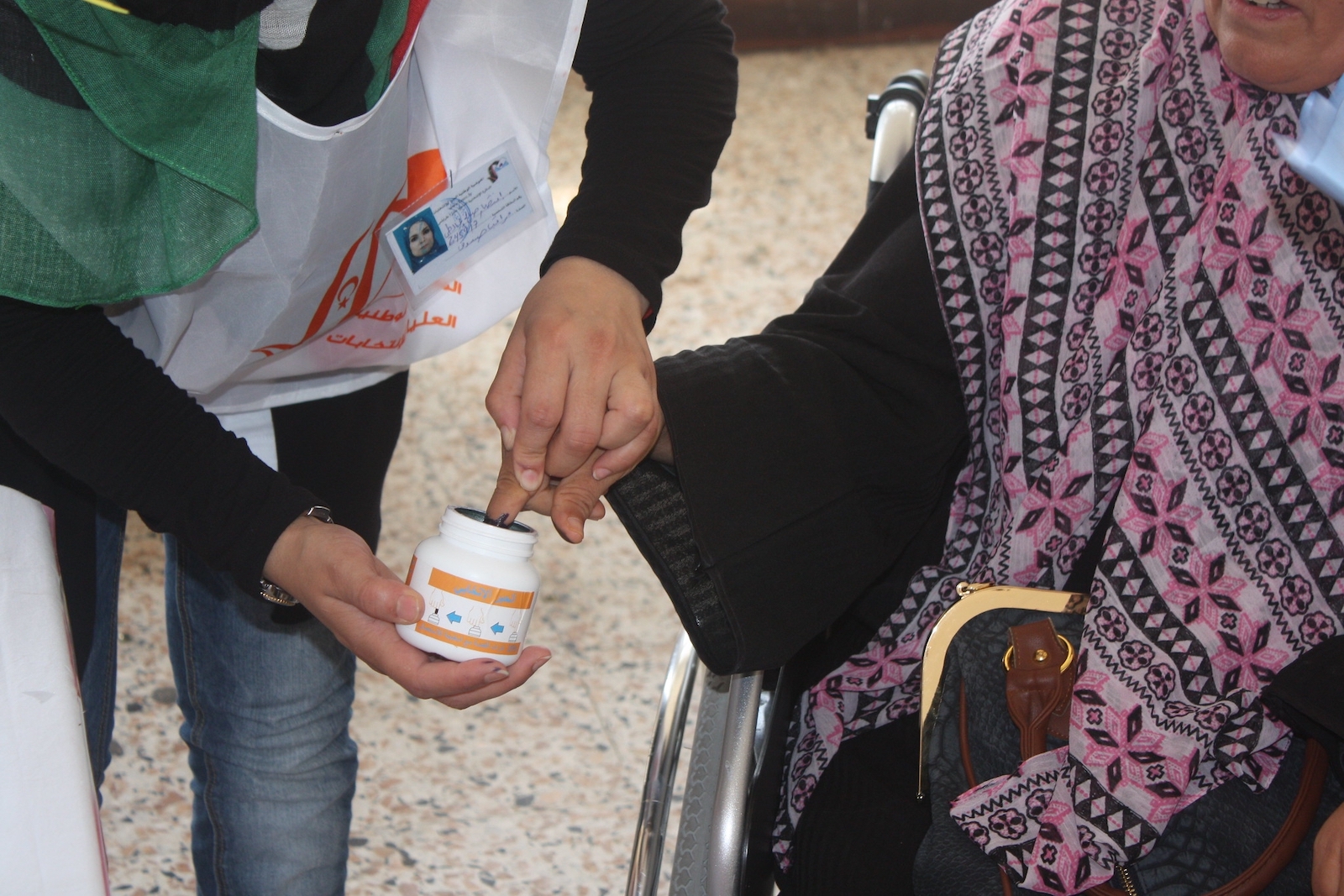
In Libya, Violence is a Tool of the Political Process
Seven months ago my driver Mohammed and I were standing in the courtyard of a strip mall outside downtown Tripoli waiting for the computer shop-keep to return from prayers. A burst of gunfire broke the afternoon quiet. After a small group milling about headed over to see what had transpired, one man reported back to us: “Some guy tried to take another’s parking spot. He fired a few shots to scare him off.” Following the incident, Mohammed told me about a similar instance where one car rear-ended another in Tripoli’s usual gridlocked traffic. The driver in the first car stepped out and unloaded his machine gun into the engine of the car that had hit his.
To anyone following the headlines about Libya recently, anecdotes like these support the narrative that three years since the revolution, the country remains overwhelmed by lawless chaos. Just a few weekends ago, for example, clashes between rival militias fighting for control of Tripoli’s international airport killed 22. In separate incidents, a Filipino construction worker was kidnapped and beheaded, and gunmen killed an army officer while he was driving home in his car. But there is more to the story of violence in Libya than simply “chaos.” In many cases, the violence has been patently political and targeted. Here, violence has become a tool of the political process.
There have been kidnappings, assassinations, and attempted coups. In April 2013, Libya’s interim Prime Minister Abdullah al-Thani resigned citing an attempted attack on his family. In the last six months, there have been at least five instances of armed protests or outright fighting that have called for the dissolution of the General National Congress, the country’s interim government. Hope for a peaceful turn for the country following the announcement of the winners for the parliamentary election have been overshadowed by an upsurge in violence that has triggered the evacuation of many foreign nationals. Some attribute the most recent bout of clashes to the struggles between Islamic and secular political factions.
While unfortunate, violence as a tool of the political process is hardly unique to Libya. In the absence of widely recognized, respected, and legitimate channels for influencing the political process, the threat and use of violence become an attractive alternative. This reality is similarly visible in Egypt and Ukraine, two states grappling with the legitimacy and authority of their own post-revolutionary institutions. Even Tunisia, the alleged poster child of the Arab Spring, has seen its political process marred by assassinations and other instances of political violence.
More broadly, a recent piece in The Atlantic cites the sobering statistic that the United States took eight years to form a stable government following the end of the Revolutionary War; France took 50 years after its own revolution, and Britain 210 years. This context gives perspective to the current challenges facing Libya, a country where political change has mostly come out of the barrel of a gun. Recall, forty years of brutal authoritarian rule only came to an end in 2011 after Muammar Gaddafi was shot fleeing a drainage ditch. Sixty years prior to that, Libya gained independence from Italy through a bloody civil war.
No wonder violence is viewed as an effective tool in the political process. What might be more surprising, however, is that for every instance of violence in the political process, there have also been many notable instances of restraint. Times that armed groups have gathered and marched on the General National Congress demanding change, for example, have not resulted in the summary execution of its members. Rather, politicians have (typically) refused to acquiesce, and the groups have (typically) dispersed without further issue.
During the period that I spent in Libya between late 2013 and early 2014, these types of protests occurred four times. Typically, the groups demanded that the Congress disband or that the Prime Minister be replaced, and did so with significant displays of force: columns of armed men accompanied by flatbeds with mounted machine guns. Yet, rarely did these protests result in any actual violence.
In another instance, an armed group held hostage the Libya Telecoms & Technology Company, the state-owned internet provider, cutting internet service and making numerous political demands. The assailants dispersed without their demands being met, without destroying Libya’s telecommunications hub, and without taking any lives.
Examples like these suggest that violence as a tool of the political process has its limits too. So does the fact that 85 percent of Libyans still believe that democracy is the best form of government, according to a poll from the National Democratic Institute. The potential for a more peaceful political process exists. While many questions remain about what shape Libya’s new government will take, strong consensus actually exists on issues that can often be the most divisive, including minority rights, federalism, Islam. Perhaps the availability of new tools and venues for political action can help realize Libya’s democratic potential?
Earlier this year, I had the privilege of contributing to building the world’s first national mobile voter registration system in Libya. The system comprises a suite of tools designed to facilitate more inclusive elections and provides a new channel for Libyans to peacefully influence the political process. While registration was lower than hoped for—the system has registered 1.5 million citizens, approximately 45 percent of the voting-age population—since February—that the system was able to even achieve these figures in a country with unstable infrastructure, a widely dispersed populace, and an electorate whose exposure to the democratic process has been limited speaks to its potential as a new tool in the political process. Moreover, during the registration periods, often a single phone was used to register numerous voters; individuals were helping one another in their communities to ensure they would have the opportunity to make their voices heard in the upcoming elections.
The demand for a more peaceful political process exists too. But elections alone will not secure peace and prosperity for Libya. Fortunately, beyond what makes the headlines, there are many Libyans dedicated to the reconstruction, rather than destruction, of their country. Volunteerism and involvement in civil society organizations in Libya are burgeoning. The members of Libya’s High National Elections Committee with whom I worked on the voter registration system were all volunteers who stepped away from their jobs to dedicate time and effort to help Libya’s nascent democracy.
Many Libyans are also eager to take advantage of opportunities to learn how they can better serve their fellow citizens and drive Libya’s movement towards peace. The International Organization for Migration, ACTED, and the UNDP are just some of the groups providing support through training and other means to Libyans wanting to take a hand in building their country. Violence can be a very effective tool for bringing down governments, or for establishing and maintaining dictatorships. But it offers little toward building consensus. While violence continues to be the primary means through which attention is brought to political concerns in Libya, with time new tools and new venues can help build trust in a more peaceful political process.

